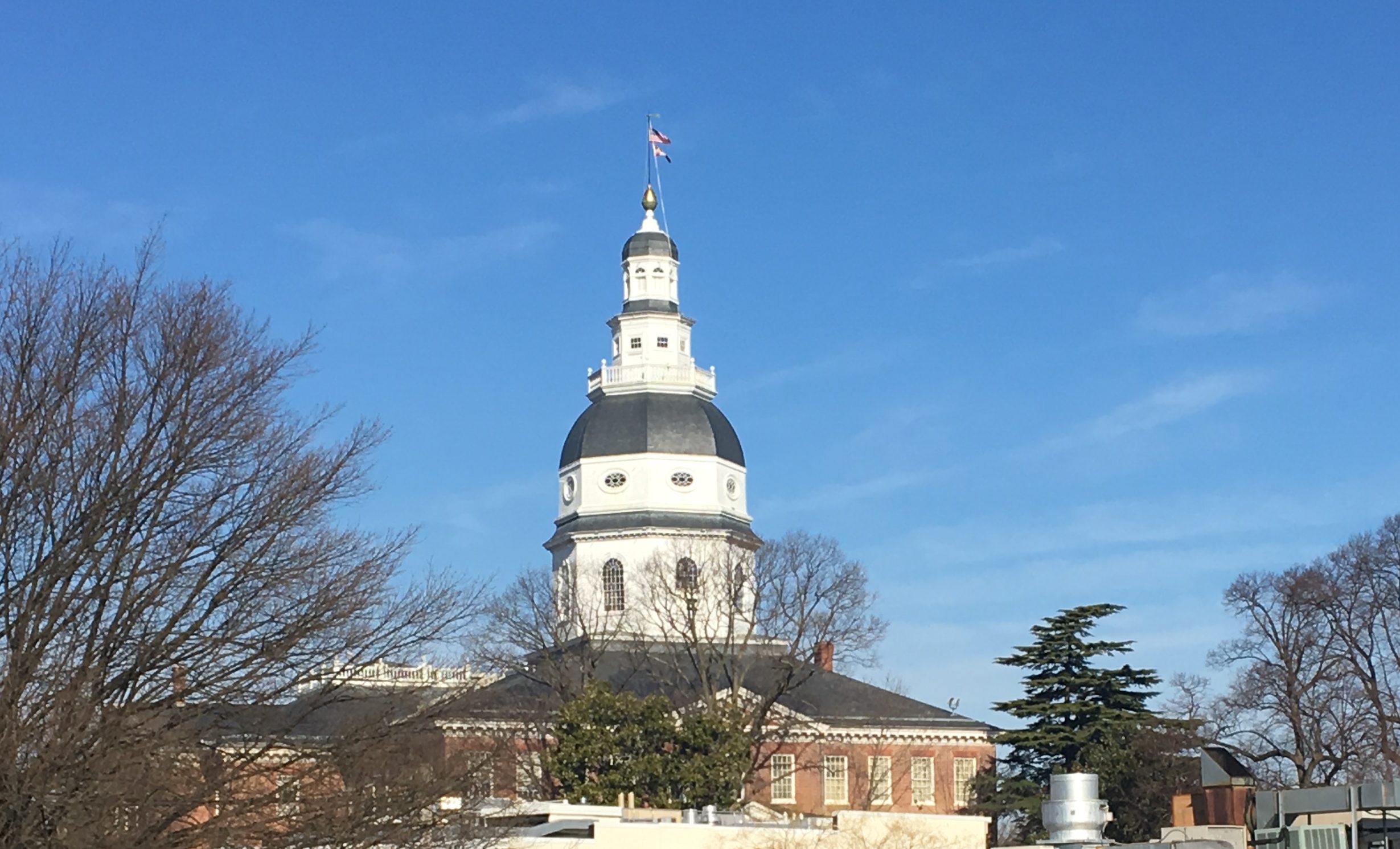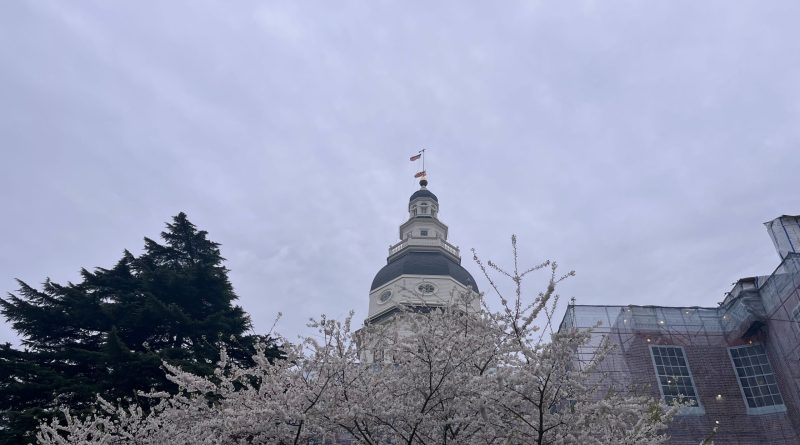State lawmakers scramble to respond to bridge collapse
By Kiersten Hacker, Angelique Gingras, Lydia Hurley and Tyrah Burris
ANNAPOLIS, Md.–The General Assembly is quickly approaching an end-of-session deadline but lawmakers are still scrambling to introduce legislation in response to this week’s collapse of the Francis Scott Key Bridge in Baltimore.
Senate President Bill Ferguson, D-Baltimore City, and Del. Luke Clippinger, D-Baltimore City, are working on an emergency bill that would provide assistance for workers and businesses at the Port of Baltimore who are affected by the indefinite halt of boat traffic.
Many lawmakers have not yet seen the official language of the bill, known as the Protecting Opportunities and Regional Trade Act, but sponsors hope to begin discussions soon.
Funding for the relief measures in the bill would tap into the state’s Rainy Day Fund. Senate Budget and Taxation Committee Chair Guy Guzzone, D-Howard County, said he’s expecting the legislature will grant Gov. Wes Moore authority to access these funds to provide support for affected individuals.
“We routinely do that. But this is obviously a special circumstance where we all want to pitch in and be able to help wherever we can,” Guzzone said.
When the bridge collapsed Tuesday, lawmakers already had a full docket of work on their desks and were in the final two weeks before the scheduled close of session on April 8. Now, their minds turn to the tragedy in Baltimore while trying to compromise on the budget and put the final touches on high-profile bills.
The PORT Act would take a three-pronged approach to provide assistance for those directly affected by the restrictions on boat traffic around the bridge. First, the bill would offer income replacement for the thousands of port workers and provide aid to small businesses related to the port and independent contractors. The bill would also use funding to incentivize businesses to keep their operations at the port rather than move elsewhere permanently.
Guzzone said he doesn’t expect the PORT Act to affect budget talks and that he is confident the spending plan will pass.
In addition to state funding, lawmakers are working in partnership with the federal government to secure relief money. Maryland Department of Transportation Secretary Paul J. Wiedefeld sent a letter Thursday seeking the “quick release” of $60 million in emergency relief from President Joe Biden’s administration.
Joining the legislative effort, Sen. Bryan Simonaire, R-Anne Arundel, unveiled another bill Thursday that would extend the powers of the state of emergency issued by Moore after the bridge collapsed Tuesday.
As the law stands now, the governor can issue a state of emergency in a crisis situation, allowing access to emergency response and resources that would normally not be needed. The state of emergency terminates within 30 days unless the governor renews it.
Simonaire said his bill would alter the law, providing the governor with access to state-of-emergency resources for one year during the restoration, repair or replacement of critical infrastructure. After one year, the governor could renew the state of emergency and the General Assembly could rescind the powers at any time.
“Considering a catastrophic event, you want to give (the governor) these powers,” said Simonaire. The proposed measure “gives us the protection that we have the oversight and we can stop those powers at any time, but it gives flexibility to the governor and the administration.”
Simonaire said the purpose of his legislation is to get this infrastructure in Baltimore back up and running as soon as possible. He hopes to have the bill under review in committee by early next week.
Simonaire was also joined by other members of the Senate in praising Moore for his response following the bridge collapse.
Moore gave remarks at a gloomy Orioles’ opening day Thursday.
“The reason I came here today is because I am calling on everybody to do their part,” Moore said. “We have a very long road ahead of us, and that’s exactly why we need partners like the Baltimore Orioles . . . The Orioles remind us what it means to be Maryland tough and Baltimore strong.”
Despite the newly introduced legislation and ongoing budget negotiations, lawmakers said it’s unlikely the General Assembly will head into an extended session. Clippinger said previous sessions have seen similar circumstances but still completed their work in keeping with the 90-day legislative clock.
“It’s kind of what happens,” Clippinger said. “I hope we don’t have to go over.”
Del. Mark Edelson, D-Baltimore City, said he has confidence that the House and Senate can come together with a shared focus on families and individuals impacted to quickly pass laws in Annapolis.
“It’s about making sure that we do it right and don’t just rush it, but at the same time we are here to deal with long-term issues and to deal with exit issues,” Edelson said. “And we have until midnight on April 8.”

Capital News Service is a student-powered news organization run by the University of Maryland Philip Merrill College of Journalism. With bureaus in Annapolis and Washington run by professional journalists with decades of experience, they deliver news in multiple formats via partner news organizations and a destination Website.

